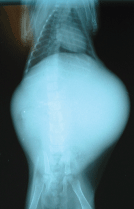Read Our Blogs
Play Bingo with MPAH
Starting this March play Bingo with us to win prizes. Simply print the bingo card by clicking “play now” below and start crossing off squares. Completing six squares will get you a $20 gift certificate. Go for the blackout and get a free annual visit, a value of $98! Bring your completed card and screen…
Read MoreRat Bait Toxicity
by Dr. Rebecca Donaldson Rat poison (rodenticide) is highly dangerous to our dogs and cats when ingested. There are several kinds of rodenticides and they cause toxicity to our pets in different ways. This article will discuss the types of rodenticides, their effects on the body, possible treatments, and ways to prevent ingestion. If you…
Read MoreRecent Distemper Outbreak in Racoons and Dogs
You may have spotted raccoons in your yard or in the street recently acting confused or “friendly.” Most of these raccoons are suffering from a very deadly virus called distemper. The raccoons should not be approached, and you should keep your pets and children away from them. A call to Dallas Animal Control at 311…
Read MoreRecognizing Illness in Your Family Pet
By Kathryn Sarpong, DVM Discovering your pet is ill early and getting appropriate treatment can lead to a better outcome and longer life. But how do you know your pet is ill versus just having an off day? Pets are individuals and what seems serious in one animal may be normal for another. No one…
Read MoreSeizures in Pets
by Dr. Lindsey Shipp [printer-friendly version] Seizures are scary and stressful to witness – even for medical professionals! They are one of the most common emergencies seen at a veterinary hospital, and many dogs (and some rare cats) are affected by recurrent seizures. Here is some information to help you navigate seizures in your pet.…
Read MoreSpleen and Liver Cancer in Pets
Dr. David Deresz [printer-friendly version] Unfortunately, just as in humans, cancer is a common disease seen in older patients. Veterinary medicine has progressed immensely in the last 10 to 15 years regarding our ability to diagnose and treat cancer. There are many different types affecting many different body systems. Each has its own prognosis and…
Read MoreTapeworms in Pets – Signs, Symptoms, & Treatment
Jeffrey Smith, B.S. – Veterinary Technician What are tapeworms? Tapeworms (Dipylidium caninum) are flat intestinal parasites that attach to the inside of dogs and cats intestines and feed off of food passing through. They can grow to half a foot in length or longer. How do I know if my pet has tapeworms? The most…
Read MoreUretonephrectomy in a 4-Week-Old Kitten
By Dr. Jennifer Lavender, DVM Hydronephrosis is caused by increased intrarenal pressure due to ureteral defect (ie. ectopic, stenotic, hypoplastic, torsed, etc.). Uretronephrectomy is a viable solution when contralateral renal function is adequate. A four-of-week old kitten presented for abdominal distension. The owner had noticed the enlarging abdomen over the last week. None of this…
Read MoreVestibular Disease in Pets
by Dr. Maria Badamo [printer-friendly version] The vestibular apparatus is the body’s system for determining our orientation to our surroundings. It lets us know when we are upright, upside down, whether we are leaning to one side, or backwards, etc. When there is a disruption of the vestibular system the body has a difficult time…
Read MoreWhat is “Viral Testing” for my Cat?
Kathryn Sarpong, DVM DABVP Your veterinarian may have recommended viral testing for your kitten or cat. There are many viruses that infect cats, but “viral testing” usually refers to a blood test that looks for feline leukemia virus (FeLV), and Feline Immunodeficiency Virus (FIV). These viruses can be deadly and are contagious from contact with…
Read More









